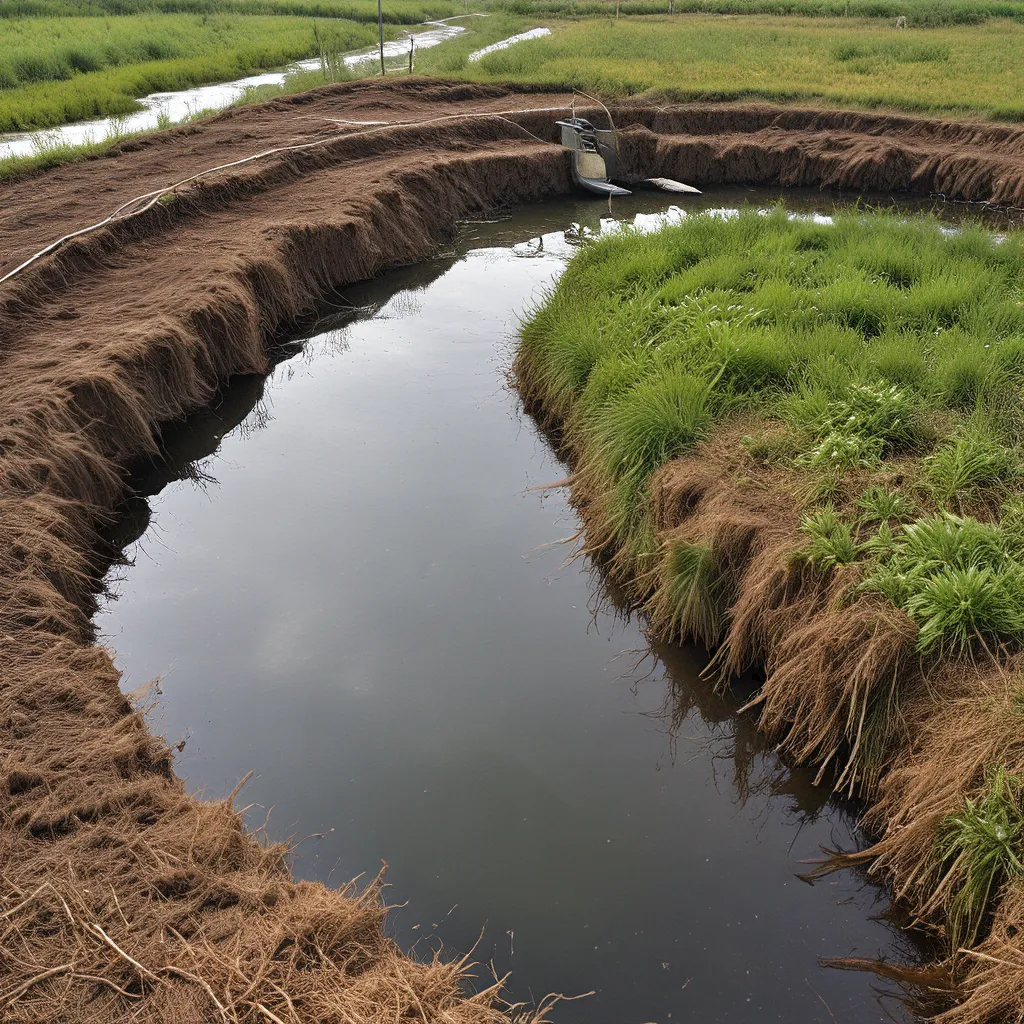
As a passionate advocate for sustainability, I’ve been fascinated by the concept of the circular bioeconomy and its potential to transform the way we manage our wastewater and organic waste. It’s a topic that’s near and dear to my heart, and I can’t wait to dive into it with you.
Unlocking the Power of Biological Resources
The circular bioeconomy is all about harnessing the power of renewable biological resources to create a more sustainable and regenerative economic system. By shifting away from our reliance on finite fossil fuels and embracing the bounty of nature, we can close the loop on waste and transform it into valuable products and energy.
One of the key areas where the circular bioeconomy shines is in the realm of wastewater treatment. Think about it – our wastewater and organic waste are teeming with untapped potential. Rather than simply disposing of these materials, we can utilize them as feedstock for a wide range of bio-based products, from bioplastics and biofuels to organic fertilizers and high-value chemicals.
Pioneering Innovative Solutions
I’ve been following the work of some truly remarkable organizations that are at the forefront of this circular revolution. Take the HICCUPS project, for example. By efficiently capturing CO2 emissions from wastewater treatment plants and converting them into high-performance bio-based plastics, they’re addressing environmental challenges while providing sustainable packaging solutions. This innovative approach to valorization is just the tip of the iceberg.
Another inspiring example is the BIOrescue project, which is tackling the significant waste management challenge of spent mushroom substrate (SMS) in Europe’s mushroom industry. By developing an integrated biorefinery concept that utilizes SMS and other underutilized feedstocks, they’re transforming waste into valuable bio-based products like bio-based nanocarriers and biopesticides. It’s a brilliant demonstration of how the principles of the circular economy can be applied to the agricultural sector.
Embracing Sustainable Production Practices
Of course, realizing the full potential of the circular bioeconomy requires more than just innovative technologies. It also demands a comprehensive approach to sustainable production practices. Leading organizations are already embracing renewable energy sources, optimizing raw material use through techniques like precision agriculture and biorefining, and implementing closed-loop systems to minimize waste.
By incorporating green chemistry principles into the design and production of bio-based materials and products, companies can further enhance their environmental performance and contribute to a more sustainable future. The integration of these strategies not only reduces reliance on finite fossil resources but also minimizes environmental impact throughout the product life cycle.
Empowering Sustainable Consumption
But the circular bioeconomy is not just about production – it’s also about empowering sustainable consumption. Consumer awareness and education play a crucial role in driving the adoption of bio-based and biodegradable products. By raising awareness about the benefits of these eco-friendly alternatives and the importance of reducing waste, we can empower consumers to make more informed choices.
Market incentives and policies also have a significant impact on shaping consumer behavior. Governments can implement eco-labeling schemes, product standards, and taxation policies to encourage the production and consumption of sustainable products. These initiatives, combined with public awareness campaigns, can create a level playing field for sustainable businesses and drive systemic change towards a more circular economy.
Closing the Loop on Waste
Perhaps one of the most exciting aspects of the circular bioeconomy is the potential to close the loop on waste. Through effective end-of-life management strategies like composting, recycling, and sustainable disposal initiatives, we can divert waste from landfills and promote true circularity.
The FINILOOP project is a fantastic example of how this can be achieved at the city level. By connecting and strengthening actors along the entire waste value and service chain, this initiative is working to bolster and scale local enterprises, create safer job opportunities for informal waste workers, and foster cleaner communities through awareness-raising and behavior change efforts. It’s a holistic and sustainable approach to waste management that benefits both the environment and the economy.
The Power of Collaboration
As I’ve explored the world of the circular bioeconomy, I’ve been struck by the power of collaboration in driving meaningful change. From industry partnerships to public-private initiatives, the most impactful solutions often emerge when diverse stakeholders come together to tackle complex challenges.
Take the HOOP project, for example. By leveraging the fermentation technology to valorize used cooking oils and convert them into high-value polyhydroxyalkanoates (PHAs), this initiative is addressing waste management challenges while producing a biodegradable and biocompatible biopolymer with diverse applications. It’s a shining example of how cross-sector collaboration can unlock the full potential of organic waste.
The Path Forward
As I look to the future, I’m filled with a sense of optimism and determination. The circular bioeconomy offers a blueprint for a more sustainable and resilient future, one that harnesses the power of nature to address the pressing environmental and economic challenges we face.
By continuing to advocate for policies and initiatives that support the adoption of bio-based and biodegradable products, as well as the implementation of best practices throughout the product lifecycle, we can drive material circularity and accelerate the transition towards a circular economy. It’s a journey that will require perseverance, innovation, and a deep commitment to collaboration, but I believe the rewards will be well worth the effort.
So, let’s roll up our sleeves and get to work. The future of our planet and our communities depends on it. Alpha Wastewater is here to support you every step of the way, providing the expertise and solutions you need to unlock the full potential of the circular bioeconomy.